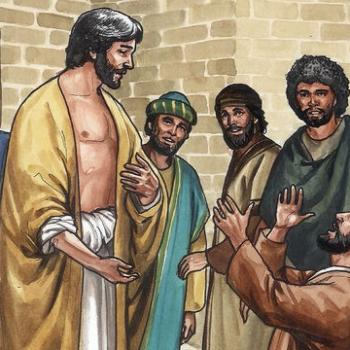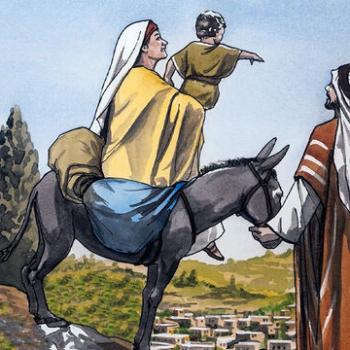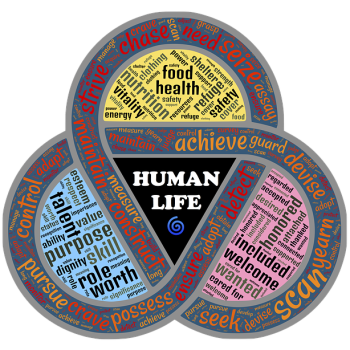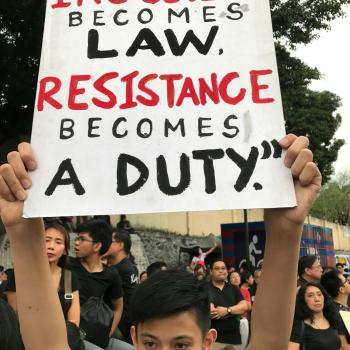Opposition to capital punishment involves forgiveness, hope and nonviolence, but the main issue is God’s sole power over life and death.
In 2018, the official Catechism of the Catholic Church was changed to declare that capital punishment is “an attack on the inviolability and dignity of the person” and “inadmissible” in all cases.
The previous Catechism had permitted capital punishment if it were the only way to defend human lives against unjust forces, but such executions were thought to be rarely, if ever, needed.
Throughout history, the Church had approved the death penalty as a lawful function of government. Even Sts. Augustine and Thomas Aquinas defended the death penalty.
While the Church made clear that the condemned person still possessed human dignity, it was felt that such a person had forfeited his/her own life by committing the crime.
Church Members Lag Behind Vatican Evolvement
By the middle of the 20th century though, the Church had begun to question this “exception” to Thou Shalt Not Kill. St. John Paul II and Popes Benedict and Francis have all written against the practice.
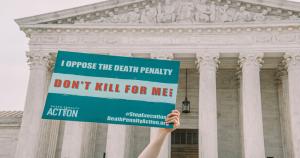
Unfortunately, the majority opinion of American church members has not evolved as well.
According to a 2021 Pew Poll, 31% of U.S. Catholics “somewhat” favor the death penalty for those convicted of murder, while 27% “strongly” favor it. Only 30% of U.S. Catholics believe the death penalty is morally wrong.
In a previous blog, I discussed how the Consistent Life Ethic is inherent in Catholic beliefs. https://www.patheos.com/blogs/musingsfromthepew/2021/09/blogs-musingsfromthepew-p254/
For those who follow this ethic, capital punishment is an unacceptable form of violence. No one has the right to kill anyone — not the unborn, the elderly, the disabled or infirm, the enemy, anyone.
Life and Death Are God’s Decisions
To me, respecting life is a package deal. Once we understand that life and death are God’s decisions, our own decisions become easy. There is no need for an agonizing internal debate about whether to have an abortion, to commit suicide, or to prematurely bring death to the elderly or the imprisoned. Just leave it to God.
God creates life and determines the time of death. Since life and death are God’s decisions, we have to stay out of it. If we revere God, then we revere life and accept death when it comes. It’s just flat not our place to interfere.
Some people try to justify the death penalty by calling it “justice.” My observation has been that what they mean is “revenge.” They’ll deny it, but that’s actually what’s happening.
Time to Ask for Forgiveness
Another essential element to the question of capital punishment is forgiveness. Not only are we expected to forgive trespasses, but God will forgive any sin, no matter how grievous. Therefore, don’t we have to give the offender as much time as possible to ask for forgiveness?
If we take a person’s life before natural death, then that prematurity possibly prevents the condemned from finding God.

For even the most hardened or vicious criminal, there is hope. Oh yes, some are so evil, so possessed by the devil, that it is not likely they will ever come around.
Nonetheless, God’s power is the mightiest of all, so it is possible for anyone to repent even if it is at the last minute — as the expression goes: “between the stirrup and the ground.”
There have been many last-minute conversions, or at least, very late in life. The first notable example is St. Dismas, hanging on the cross next to that of Jesus and begging for mercy on his soul.
As evidence, there is a book by Karen Edmisten, published by Our Sunday Visitor in 2013, called: Deathbed Conversions: Finding Faith at the Finish Line that tells the conversion stories of John Wayne, Gary Cooper, Patricia Neal, Oscar Wilde and more.
All Possible Chances
We can’t count out anyone. We have to give each person all the time God grants, or we are trespassing on God’s territory. Capital punishment encroaches on the relationship, or potential relationship, between God and the prisoner.
As Catholics who should never despair of God’s mercy, we must hold out hope, even for the worst offenders among us.
If we truly believe that anything is possible with God, then we have to allow time for conversions, we have to forgive as we are forgiven, and we cannot usurp God’s power over life and death.







